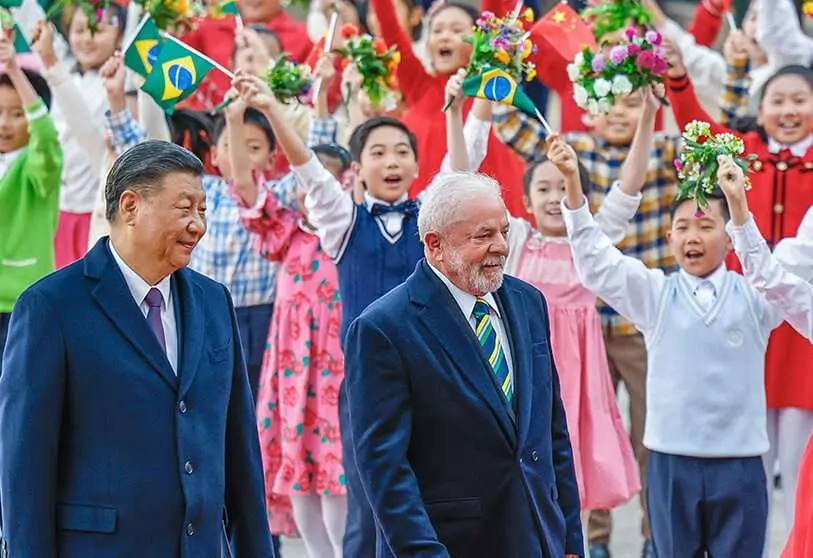Lula opens wide the door of the Global South to China

New success for Chinese President Xi Jinping. His complete harmony with the Brazilian president, Luiz Inácio Lula da Silva, seals China's entry into the Ibero-American continent, while at the same time consecrating Brazil's leader as the undisputed leader and interlocutor of the so-called Global South.
Up to fifteen memorandums of understanding on agriculture, technology, telecommunications and audiovisual and media cooperation were signed at the Grand Palace in Beijing by the two large representations of Brazilian and Chinese businessmen, who aspire to once again beat the already voluminous trade exchange of 171.5 billion dollars between the two countries. However, the main novelty is not in the gigantic projection of future exports from one to the other and vice versa, but in the fact that China and Brazil will establish their new contracts in yuan and reais, the respective currencies of both countries. They are thus dealing a new blow to the hegemony of the US dollar, a commitment already made by the BRICS alliance (Brazil, Russia, India, China and South Africa).
Lula himself underlined this transcendental geopolitical change during the inauguration in Shanghai of the president of the New Development Bank, his right-hand woman and successor in the Brazilian presidency, Dilma Rousseff, who was ousted from power following an impeachment process. Rousseff herself was the host in 2014 of the BRICS summit held in 2014 in Fortaleza, where the creation of the aforementioned multinational financial institution was agreed, which Lula intends to be the alternative to the International Monetary Fund (IMF), managed until now in his opinion by the United States and Europe.
With all these agreements, China not only ensures the supply of raw materials that Brazil provides it with, but also establishes a solid alliance with the Latin American giant, thus facilitating the already significant foothold built up by China on the continent, where it has displaced the United States and Europe as the undisputed leading investor. In turn, President Lula, whose first official visit was to the United States, will present himself in Europe, his next decisive presidential tour, strengthened by Beijing's recognition and established almost spontaneously and naturally as the leader of the so-called Global South, the group of developing countries located not only to the south, but also to the north of the equator.
The fact that Lula and Xi Jinping addressed from their own perspective burning global issues such as the war in Ukraine, the use of alternative currencies to the dollar in trade exchanges and, in short, multilateralism as a fundamental change in international relations, shows the firm willingness of both leaders to change the model by which the world has been governed since the end of World War II until now. And, indeed, this process of transformation is taking on a much more dizzying speed than not so longstanding analyses would have predicted.
The progressive division of the world is also emerging ever more starkly: on the one hand, the world of advanced democracies, progressively smaller in both territorial and demographic terms; on the other, the authoritarian model, unambiguously led by China, which is basically a combination of communism and state capitalism. The battle will not only be one of war, but above all one of economic and technological efficiency. In short, the winner will be the one who proves that it can advance more and better collectively with its liberal democratic or authoritarian model. If you want to look at it another way, the defeated communism of 1989 may already be plotting its revenge.

